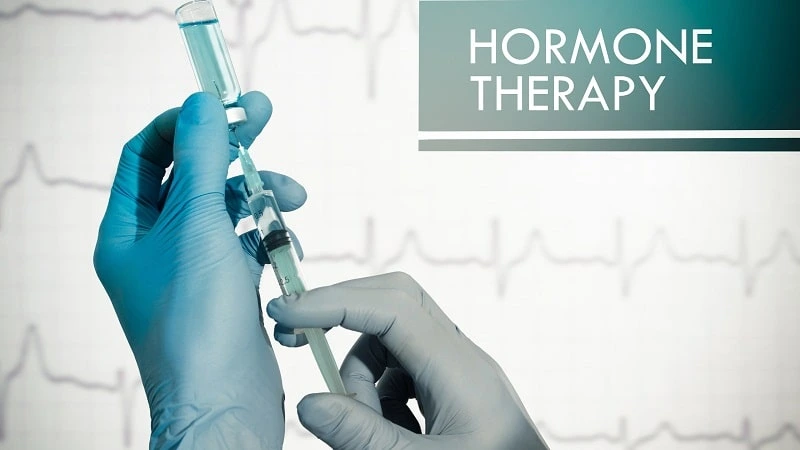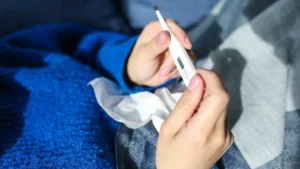Struggling with infertility can be a difficult and emotional journey, and many couples turn to in vitro fertilization (IVF) as a solution. However, despite the best efforts of doctors and patients, IVF doesn’t always result in a successful pregnancy. Not only can this be devastating emotionally, but it can also have physical effects on the body, such as irregular periods after IVF failure.
In this article, we’ll explore the causes, symptoms, and treatment options for irregular periods after IVF failure, as well as provide tips for coping with the emotional impact of this experience.
Causes of Irregular Periods After IVF Failure
After an IVF failure, it is not uncommon for women to experience irregular periods. Here are some potential causes of this issue:
Hormonal Imbalances
During IVF treatment, women are often given medications to stimulate their ovaries and increase the likelihood of successful fertilization.
These medications can disrupt the body’s natural hormonal balance, which can lead to irregular periods.
For example, some women may experience an increase in estrogen levels, which can cause the lining of the uterus to thicken and lead to heavy or prolonged bleeding.
Read More: How Many Injections for IVF Treatment are Required?

Psychological Stress
Undergoing IVF can be a highly stressful and emotional experience. The pressure to succeed, the financial burden, and the physical demands of treatment can all take a toll on mental health.
Stress can disrupt the delicate balance of hormones in the body, leading to irregular periods. Additionally, stress can cause changes in appetite, sleep patterns, and exercise habits, which can all impact the menstrual cycle.
Read More: Can Ovarian Cyst Cause Hormonal Imbalance?
Changes in Ovarian Function
IVF treatment can sometimes cause changes in ovarian function, which can impact menstrual cycles.
For example, after IVF, some women may experience a decrease in the number of eggs that their ovaries produce each month.
This can lead to a shorter menstrual cycle or a decrease in the amount of menstrual bleeding.
Signs and Symptoms of Irregular Periods After IVF Failure
After an IVF failure, women may experience irregular periods. Here are some common signs and symptoms to look out for:
Changes in Menstrual Cycle Length
One of the most noticeable signs of irregular periods after IVF failure is a change in the length of the menstrual cycle.
For example, some women may experience a shorter or longer menstrual cycle than usual. This could be caused by changes in ovarian function or hormonal imbalances.
Intensity and Duration of Menstrual Bleeding
Irregular periods after IVF failure can also be characterized by changes in the intensity and duration of menstrual bleeding.
Some women may experience heavier or lighter bleeding than usual, or the bleeding may last for a shorter or longer period of time.
Painful Menstruation
Painful menstruation, or dysmenorrhea, is another common symptom of irregular periods after IVF failure.
This may be caused by changes in the thickness of the uterine lining, which can lead to cramping and discomfort during menstruation.
Spotting Between Periods
Some women may experience spotting or light bleeding between periods after IVF failure. This can be a sign of hormonal imbalances or changes in ovarian function.

Other Symptoms
In addition to the above symptoms, women may also experience other physical and emotional symptoms after IVF failure. These may include fatigue, headaches, mood swings, and depression.
Treatment Options for Irregular Periods After IVF Failure
If you are experiencing irregular periods after an IVF failure, there are several treatment options available. Here are some common ones:
Hormonal Therapy
Hormonal therapy is a common treatment option for irregular periods after IVF failure. This may involve taking medications, such as birth control pills or progesterone supplements, to regulate the menstrual cycle and balance hormone levels.
Lifestyle Changes
Making lifestyle changes can also help regulate the menstrual cycle after IVF failure. This may include maintaining a healthy diet, getting regular exercise, and reducing stress levels.

Surgery
In some cases, surgery may be necessary to correct the underlying cause of irregular periods after IVF failure. For example, surgery may be needed to remove uterine fibroids or correct structural abnormalities in the reproductive system.
Fertility Treatment
If you are still hoping to conceive, you may want to consider undergoing another round of fertility treatment, such as IVF or intrauterine insemination (IUI). Your doctor can help you determine if this is a viable option for you.
Counseling
Undergoing infertility treatment can be a highly emotional and stressful experience. Counseling or therapy can help you cope with the emotional impact of IVF failure and develop strategies for managing stress and anxiety.
Coping With the Emotional Impact of Irregular Periods After IVF Failure
Experiencing irregular periods after IVF failure can be a highly emotional and stressful experience. Here are some strategies for coping with the emotional impact:
Acknowledge Your Feelings
It is important to acknowledge and accept your feelings of sadness, disappointment, and frustration. Allow yourself to grieve the loss of the pregnancy and the hopes and dreams you had for your family.
Seek Support
Talking to friends and family members who have been through similar experiences can provide a sense of comfort and understanding. You may also want to consider joining a support group or seeking the guidance of a therapist or counselor.

Take Care of Yourself
Taking care of yourself physically and emotionally is crucial during this time. Make sure you are getting enough sleep, eating a healthy diet, and engaging in activities that bring you joy and relaxation.
Consider Alternative Paths to Parenthood
If you are struggling to conceive through IVF, it may be helpful to consider alternative paths to parenthood, such as adoption or surrogacy. Exploring these options can help you move forward and regain a sense of hope and purpose.
Communicate with Your Partner
It is important to communicate openly and honestly with your partner about your feelings and how you can support each other during this time. Make sure to express your needs and listen to each other with compassion and empathy.
Take a Break from Fertility Treatment
If you feel overwhelmed or burnt out from fertility treatment, it may be helpful to take a break and focus on self-care. This can give you time to recharge and regain a sense of balance and perspective.
Read More: Menopause and Anger Toward Husbands: All You Need to Know
Conclusion
Irregular periods after IVF failure can be a frustrating and distressing experience for couples who are trying to conceive.
It is important to understand that irregular periods can occur due to a variety of reasons, such as hormonal imbalances, stress, and underlying medical conditions.
However, there are several treatment options available, including hormonal therapy, lifestyle changes, surgery, fertility treatment, and counseling.
It is important to speak with your doctor to determine the underlying cause of your irregular periods and develop a personalized treatment plan.
Coping with the emotional impact of irregular periods after IVF failure can also be challenging, but you can navigate this difficult time with resilience and strength.
FAQs
Can irregular periods after IVF failure be a sign of a serious medical condition?
It is possible that irregular periods can be a sign of an underlying medical condition, such as polycystic ovary syndrome (PCOS), endometriosis, or thyroid disorders. It is important to speak with your doctor to determine the underlying cause and develop an appropriate treatment plan.
Is it normal to experience irregular periods after IVF failure?
It is not uncommon for women to experience irregular periods after IVF failure. This can occur due to hormonal imbalances or other factors related to fertility treatment.
How can hormonal therapy help regulate menstrual cycles?
Hormonal therapy, such as birth control pills or progesterone supplements, can help regulate menstrual cycles by balancing hormone levels and promoting regular ovulation.
Are there any lifestyle changes that can help regulate menstrual cycles?
Maintaining a healthy diet, getting regular exercise, and reducing stress levels can all help regulate menstrual cycles and improve overall fertility.
Can surgery be a viable treatment option for irregular periods after IVF failure?
In some cases, surgery may be necessary to correct the underlying cause of irregular periods after IVF failure. This may include removing uterine fibroids or correcting structural abnormalities in the reproductive system.
How can counseling help with the emotional impact of irregular periods after IVF failure?
Counseling or therapy can help individuals and couples cope with the emotional impact of infertility and develop strategies for managing stress and anxiety. It can also provide a safe space for discussing difficult emotions and making decisions about alternative paths to parenthood.
Medical References
- Mayo Clinic. (2021). Irregular periods. https://www.mayoclinic.org/symptoms/irregular-periods/basics/definition/sym-20050784
- American Society for Reproductive Medicine. (2018). Understanding Infertility. https://www.asrm.org/globalassets/asrm/asrm-content/news-and-publications/bookletsfact-sheets/english-fact-sheets-and-info-booklets/understanding_infertility_booklet_5-18.pdf
- National Institute of Child Health and Human Development. (2020). Infertility and Fertility. https://www.nichd.nih.gov/health/topics/infertility/conditioninfo/treatments
- American College of Obstetricians and Gynecologists. (2020). Polycystic Ovary Syndrome. https://www.acog.org/womens-health/faqs/polycystic-ovary-syndrome
- Society for Assisted Reproductive Technology. (2020). Endometriosis. https://www.sart.org/patients/diagnosis-treatment/endometriosis/
- American Thyroid Association. (2021). Thyroid and Fertility. https://www.thyroid.org/thyroid-and-fertility/



